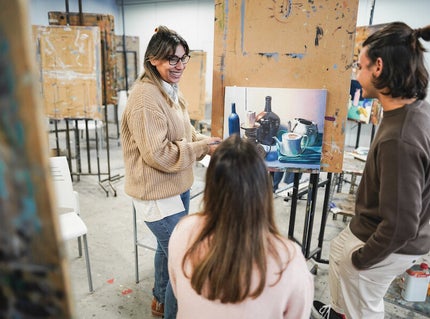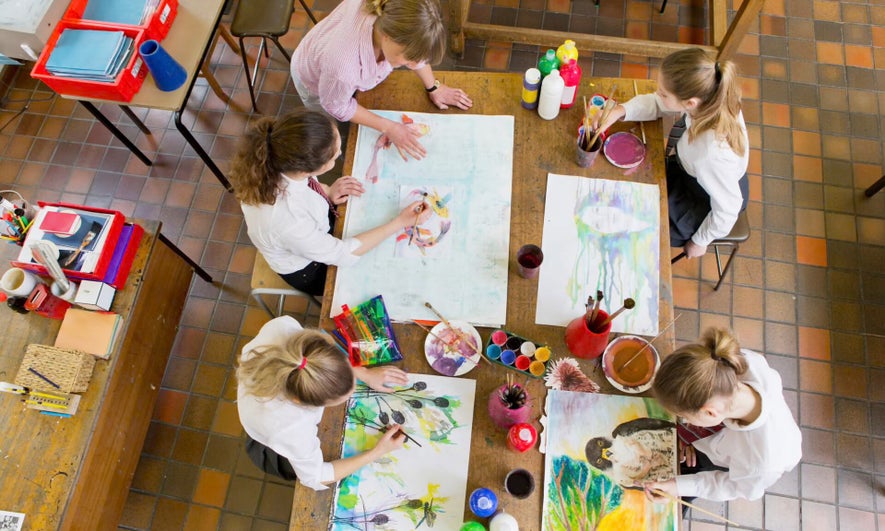When I first started my artistic journey, I relied heavily on self-teaching—watching tutorials, enrolling in budget-friendly online courses, and practicing independently. This approach helped me build a foundation, but over time, I realized there’s only so much you can learn on your own. Without professional guidance, artists often hit a creative or technical plateau, struggling to push their skills beyond a certain level.

The Limitations of Self-Taught Learning
While independent study fosters creativity and self-discipline, it has its drawbacks:
- Limited feedback: Without expert critique, it’s challenging to pinpoint areas that need improvement.
- Technical gaps: Mastering fundamentals like composition, color theory, and perspective requires structured learning.
- Creative roadblocks: It’s easy to get stuck in repetitive styles without exposure to new techniques.
The Benefits of Professional Training
Attending art school, workshops, or working with a mentor provides invaluable advantages:
- Structured guidance: A curriculum tailored to skill-building accelerates artistic growth.
- Expert critique: Receiving constructive feedback from professionals enhances technical mastery.
- Networking opportunities: Connecting with fellow artists and mentors opens doors to collaborations and inspiration.
- Exposure to diverse techniques: Hands-on experience with various mediums helps refine your unique style.

Overcoming Barriers to Professional Art Training
It’s not uncommon for young artists to feel reluctant about attending art school or seeking professional guidance. Many avoid it due to financial constraints, skepticism about how much more they can actually learn, or even pride or fear of stepping out of their comfort zone. However, growth in art—like any skill—is an ongoing journey, and the willingness to stay adaptable and open to learning is the key to progress.
I personally have been attending art school for over 3 years, and the evolution of my work has been staggering. I barely recognize my own paintings compared to when I first started! Beyond improving technical ability, professional training introduces you to like-minded artists, opening doors to friendships, collaborations, and exciting creative discussions. Art should be fun, and engaging with others who share your passion makes the experience even more fulfilling.
Investing in Your Artistic Future
Whether you enroll in an art school, take specialized workshops, or seek mentorship, investing in professional education can be a game-changer. It not only elevates your skills but also boosts confidence, helping you stand out in the competitive art market.
What If You Can’t Afford Art School?
Not everyone can enroll in formal art programs, but there are still valuable ways to learn and grow:
- Seek mentorship – Connect with experienced artists for feedback and guidance.
- Join online communities – Participate in forums, social media groups, and virtual workshops.
- Practice with structured challenges – Follow dedicated study programs tailored for self-improvement.
- Utilize free resources – Many websites, YouTube channels, and e-books offer incredible tutorials.
- Attend local meet-ups or exhibitions – Engaging with local artists in person fosters valuable learning experiences.

By continuously seeking professional development, you transform your passion into polished expertise, making your artwork even more compelling for collectors and art enthusiasts.
Staying humble and open to continuous growth, is what truly pushes your skills forward. No matter your circumstances, there are always opportunities to evolve, refine, and expand your artistic abilities.
Have you ever felt stuck in your artistic progress? What helped you break through?
I would love to hear all about it in the comment box below.


Add comment
Comments